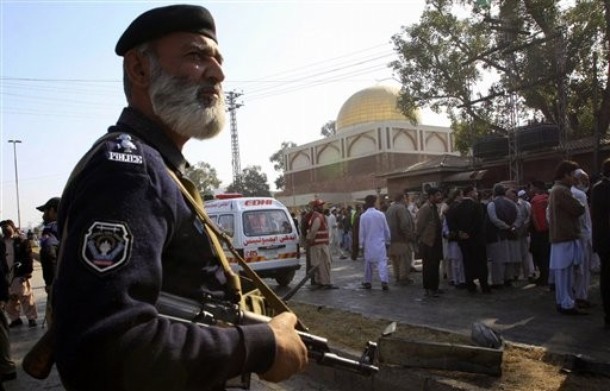Back to the Stone Age?

In making the case for an extended American commitment in Afghanistan, the New Yorker's Steve Coll argued that the U.S. must prevent the restoration of the Taliban-led "Islamic Emirate of Afghanistan" which held sway over the country in the late 1990s. Unfortunately, as Eli Lake reports today, it seems that elements within Pakistan's intelligence service have another idea:
Mullah Mohammed Omar, the one-eyed leader of the Afghan Taliban, has fled a Pakistani city on the border with Afghanistan and found refuge from potential U.S. attacks in the teeming Pakistani port city of Karachi with the assistance of Pakistan's intelligence service, three current and former U.S. intelligence officials said.
If one steps outside the debate over how many troops to send into Afghanistan, there is a broader discussion of how to turn the regional dynamics around in such a way as to favor a successful outcome for the U.S. inside Afghanistan. The biggest question mark has always been how to ensure that Pakistan doesn't nurture Taliban elements in Afghanistan as a hedge against India and an American departure. Unfortunately, no one seems to have solved this particular puzzle.
First, we had the Bush administration's initial response after 9/11, which was to threaten a military reprisal against Pakistan if they didn't quickly reorient their position toward the Taliban. That was quickly followed up with generous financial support directed at the Pakistani military. Neither really worked. The Obama administration, together with Sens. Kerry and Lugar, have decided to spread the money further afield, to Pakistan's civilian government and civil society.
Maybe this tack will work, but it will do so over time. And it will take a major, decades-long commitment on the part of the U.S. inside Afghanistan - not simply to combat the insurgency but to convince Pakistan that we're never leaving and they won't need to cultivate Afghanistan for "strategic depth." We would, in effect, have to make Afghanistan a perpetual ward of the United States.
Needless to say, none of that is cheap. Nor is it going to keep us secure from Islamic radicalism, as the Fort Hood massacre demonstrates.
(AP Photos)



